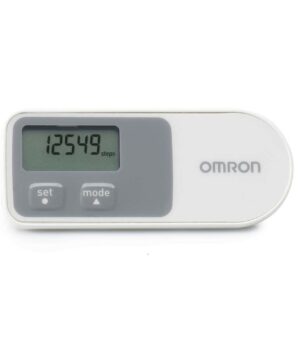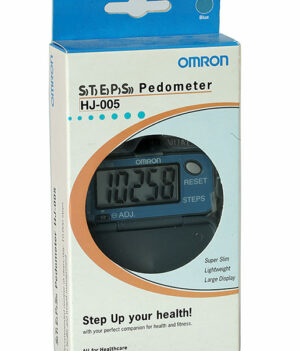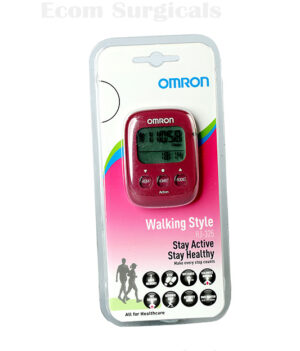- ₹ 1,099.00
MRP: Rs. 900/-
1-Year Manufacturer Warranty, Very Slim, Light Weight & Large Display
₹ 599.00MRP: Rs. 1600/-
Accurate result with 3D Smart Sensor, 1-Year Manufacturer Warranty
₹ 1,399.00
A pedometer is a small device that can help to monitor the number of steps done in a day. It may help to keep track on the distance walked each day, calories burned while walking. It is compact enough to be carried all the time.
Walking is among the simplest and most enjoyable forms of exercise, that does not require any specific equipment or training. Thus no surprise that it is one of the most recommended types of exercise for cardiovascular and respiratory health. American Heart Association recommends that people should walk briskly for about 150 minutes a week, at least.
The good thing about pedometer is that it can monitor the walking amount (number of steps taken) all the time, whether going shopping, going to a job, or doing evening walk. At the end of the day, one can get results; one can see the number of steps taken. Monitoring the amount of the step taken in a day is a superior, productive, and economical way of doing physical activities, without the need of setting 30-40 minutes for walking aside. Pedometers help to save time and stay active.
Recommendations Regarding Number of Steps
Most of the health specialists agree that a person should walk at least 10, 000 steps a day to stay healthy. While some organizations advocate an even higher number of 15,000. However, when it comes to Indians, they have often been classified among the laziest of all. Researchers estimate that on average Indians walk not more than 5000 steps in a day. It highlights the vast gap, something that may have to do with higher rates of heart and metabolic disorders in Indians.
Hence, the pedometer can be a great way to increase the number of steps taken in a day. Also it is an excellent and enjoyable approach to better health.
Benefits of Regular Walking with a Pedometer
A pedometer can help to improve walking. Thus it is contributing to the reduction of risk of heart attack, diabetes, stroke, and much more:
- It can help to improve cholesterol profile
- Help to lower the blood pressure
- Increase stamina and energy level
- Help to boost bone strength
- Prevent obesity
All need to start walking is comfortable clothes, shoes, and a pedometer. Brisk walking is more beneficial than slow walking. However, importance is of starting, and amount of steps taken in a day. If you are physically not ready for the strenuous regime, you can first just count the number of steps you take on a regular day, and then depending on the health condition, you can plan to add 500 steps on a weekly basis to your daily routine. In this way, you would not even feel when you have reached 10,000 or even 15,000 or more steps a day.
While walking, try to focus on posture. Do not carry hands instead naturally swing them. If you want to walk faster, instead of taking bigger strides better focus on pulling your back leg forward quicker. Also learn to breathe correctly, if you cannot talk while walking, then better decrease the temp.
Other things to remember is to stay safe and stay away from heavy traffic. Try to find a walking partner, in that way walking would be more fun. And of course, always carry the pedometer, to be sure about progress.





